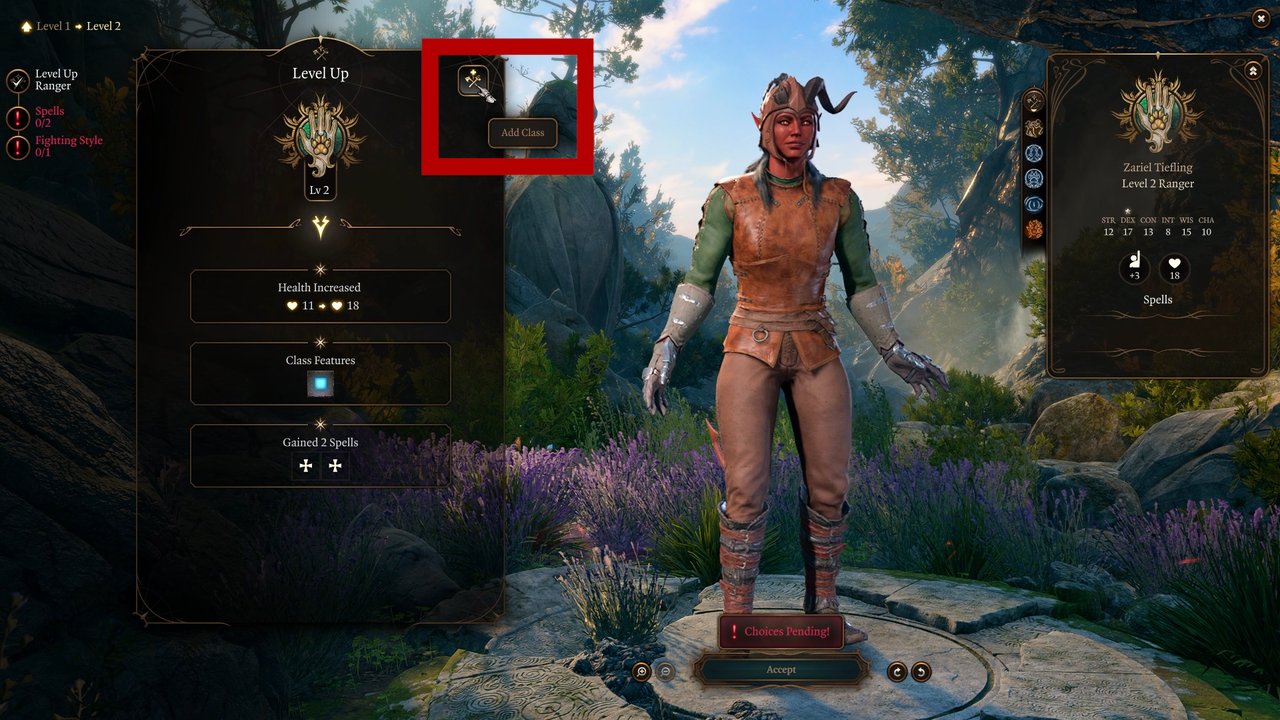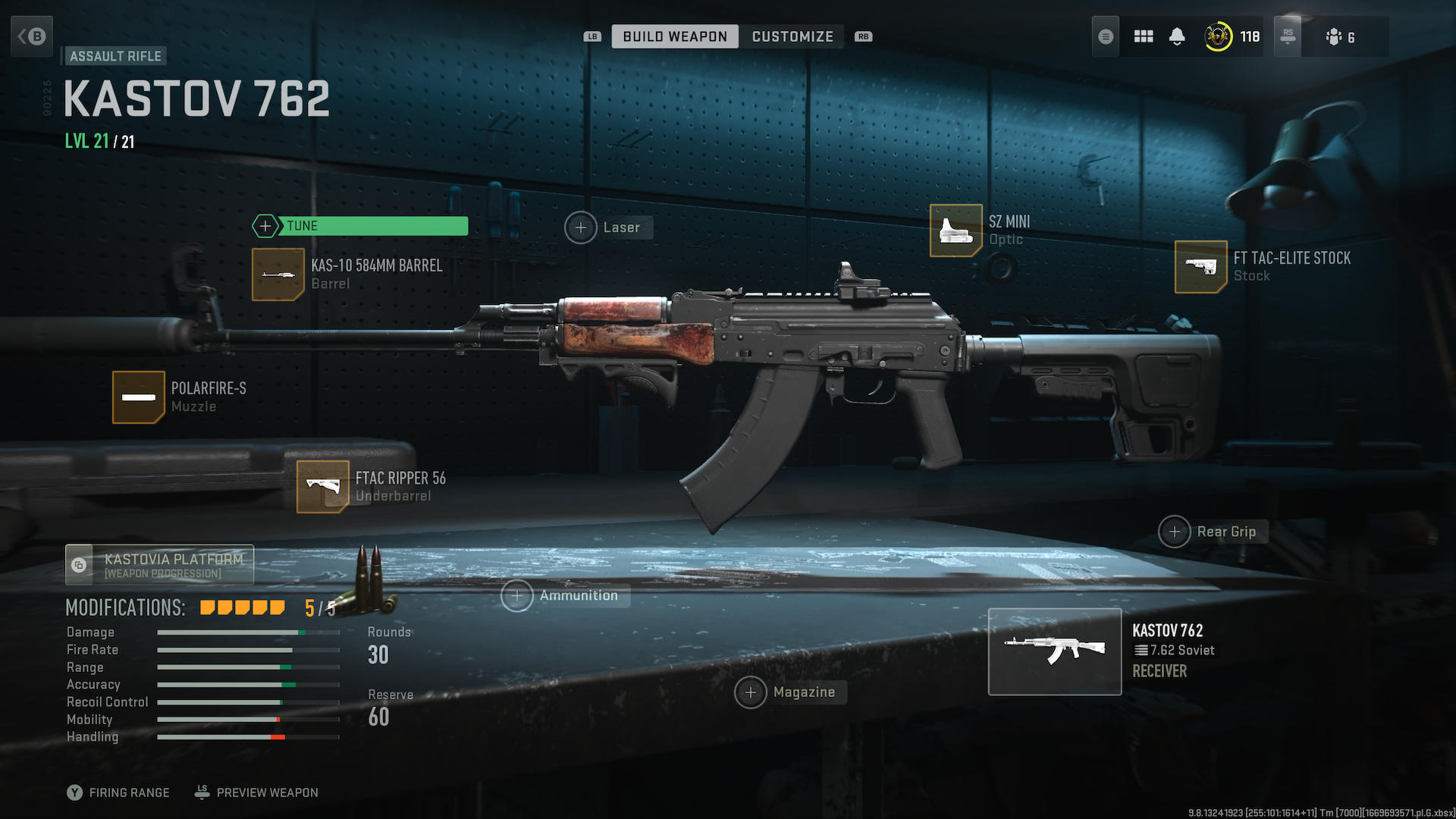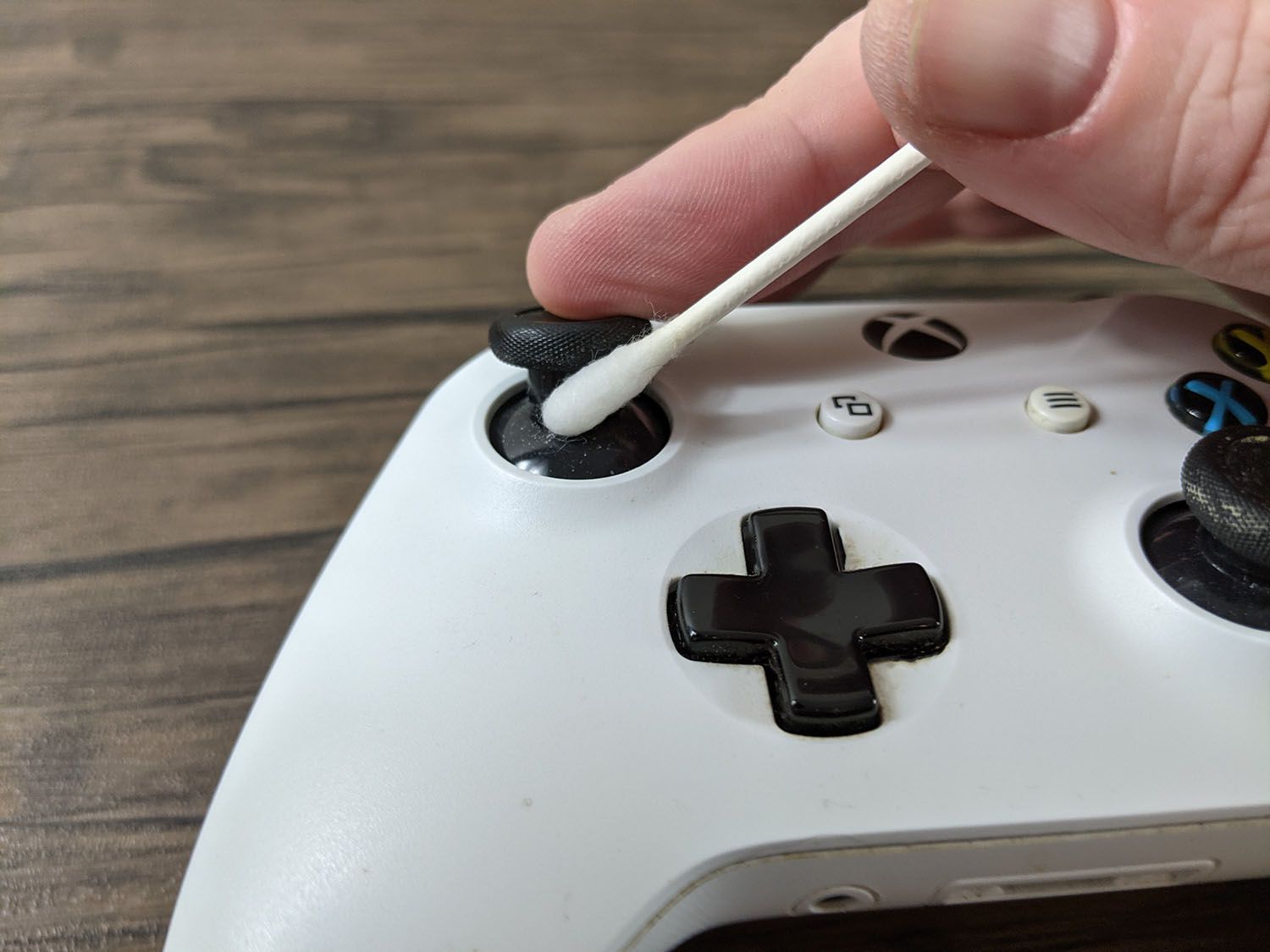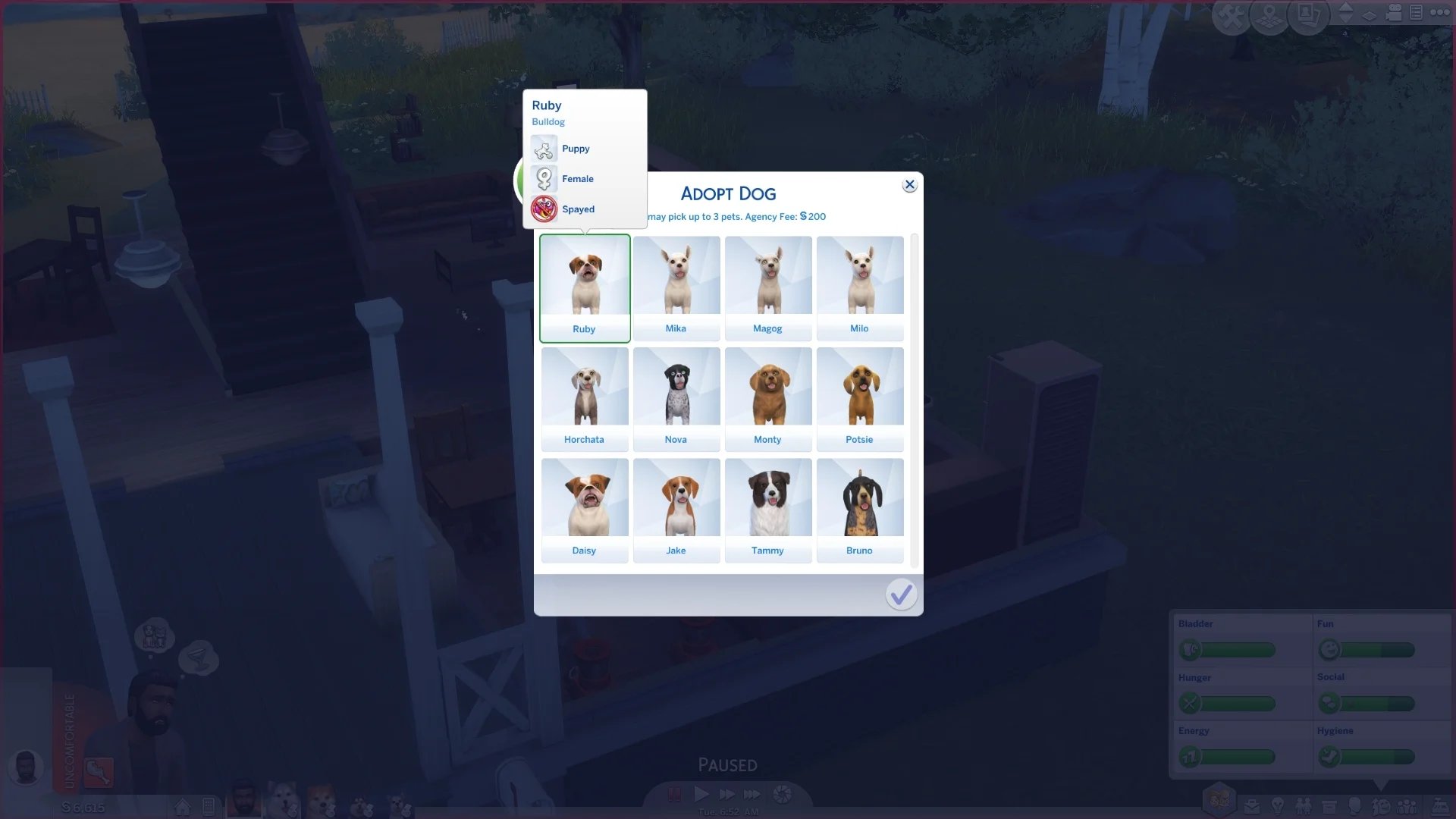Home>Technology and Computers>How To Fullscreen A Game
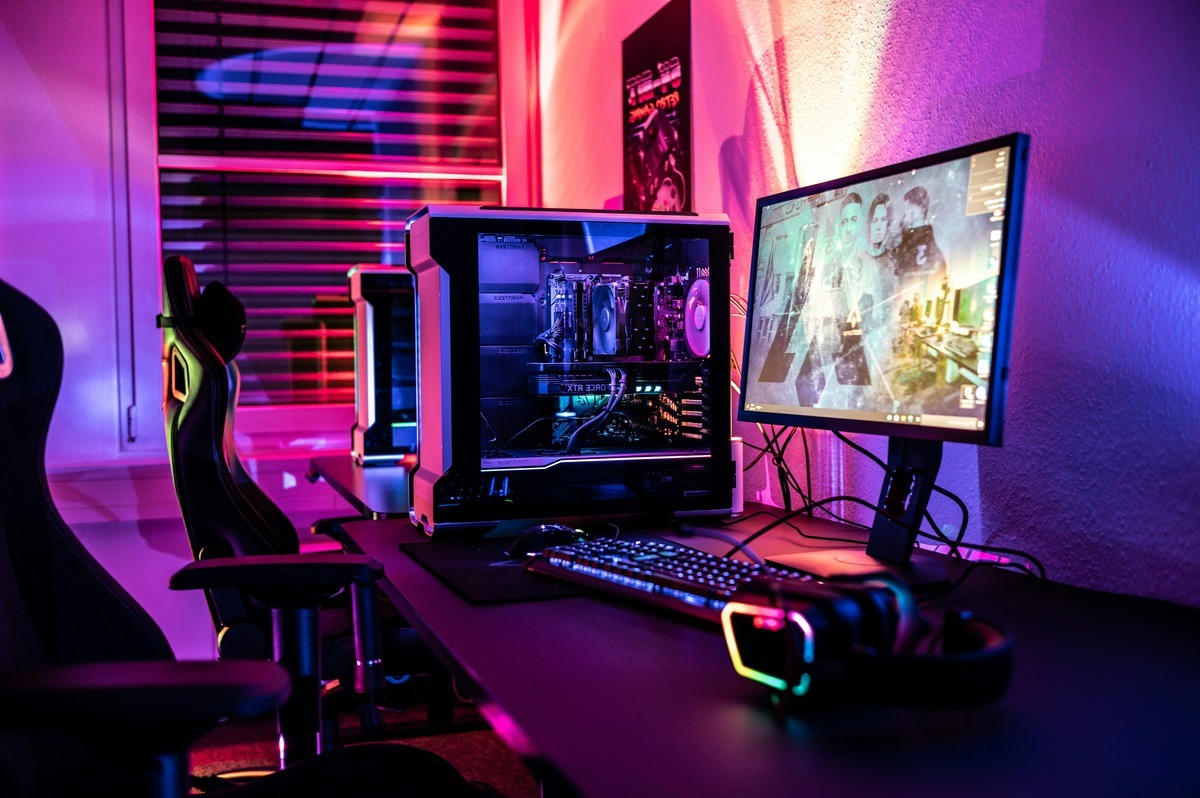

Technology and Computers
How To Fullscreen A Game
Published: March 2, 2024
Learn how to easily fullscreen a game on your computer using simple technology and computer tips. Enhance your gaming experience with these helpful tricks!
(Many of the links in this article redirect to a specific reviewed product. Your purchase of these products through affiliate links helps to generate commission for Noodls.com, at no extra cost. Learn more)
Table of Contents
Introduction
Playing video games in fullscreen mode can provide a more immersive and captivating experience, allowing you to dive deep into the virtual world without any distractions. Whether you're exploring vast open landscapes, engaging in intense battles, or solving intricate puzzles, fullscreen mode can enhance the visual impact and overall enjoyment of the game. However, not all games offer a straightforward way to enable fullscreen mode, and some may require additional steps or third-party software to achieve this.
In this guide, we will explore various methods to fullscreen a game, catering to different scenarios and preferences. Whether you're a seasoned gamer or new to the world of PC gaming, understanding how to enable fullscreen mode can significantly enhance your gaming experience. From utilizing in-game settings to leveraging keyboard shortcuts and third-party software, we'll cover a range of techniques to help you achieve fullscreen mode for your favorite games.
So, if you've ever found yourself frustrated by a game that doesn't seamlessly transition into fullscreen mode or simply want to optimize your gaming setup, this guide is for you. By the end of this article, you'll have a comprehensive understanding of the different approaches to fullscreening a game, empowering you to tailor your gaming experience to your preferences and enjoy every moment within the virtual realms. Let's dive into the world of fullscreen gaming and unlock the potential for a more immersive and visually stunning gameplay experience.
Read more: How To Beat Ancano
Step 1: Check if the game has a built-in fullscreen option
Before delving into more complex methods, it's essential to first determine if the game you're playing offers a built-in fullscreen option. Many modern games are designed to provide a seamless transition into fullscreen mode, allowing players to immerse themselves fully in the gaming environment. Here's how you can check for this option:
-
In-Game Settings: Start by accessing the game's settings menu. Look for a section specifically dedicated to display or graphics settings. Within this section, there is often a toggle or checkbox labeled "Fullscreen" or "Windowed Mode." If the game supports fullscreen mode, you should be able to enable it directly from the settings menu.
-
Graphics Options: Some games may not have a dedicated fullscreen toggle but instead offer a range of graphics options that include display mode settings. Look for options such as "Display Mode," "Resolution," or "Screen Mode." If the game supports fullscreen mode, you should be able to select it from the available display mode options.
-
Launcher Settings: In certain cases, especially with games that utilize launchers or game clients, the fullscreen option may be accessible through the launcher settings rather than within the game itself. Check the launcher settings for any display or graphics options that allow you to enable fullscreen mode.
-
Game Documentation: If you're unsure about the fullscreen capabilities of a particular game, referring to the game's documentation or official website can provide valuable insights. Look for information related to display settings, supported resolutions, and display modes to determine if the game offers a built-in fullscreen option.
By thoroughly exploring these avenues, you can ascertain whether the game provides a straightforward method for enabling fullscreen mode. If the game does indeed offer a built-in fullscreen option, you can proceed to activate it and enjoy an immersive gaming experience without the need for additional software or complex configurations. However, if the game lacks a native fullscreen option or if you encounter limitations with the built-in settings, don't worry – there are alternative methods to achieve fullscreen mode, which we'll explore in the following steps.
Step 2: Use the in-game settings to enable fullscreen mode
Utilizing the in-game settings to enable fullscreen mode is often the most straightforward and seamless method to immerse yourself fully in the gaming experience. Many modern games are designed with user-friendly interfaces that allow players to customize their display preferences effortlessly. Here's a detailed exploration of how to leverage in-game settings to enable fullscreen mode:
Accessing the Settings Menu
To begin, navigate to the game's main menu or pause screen and look for an option labeled "Settings," "Options," or "Preferences." Once you've accessed the settings menu, locate the section dedicated to display or graphics settings. This section is where you'll find the necessary options to configure the game's display mode.
Enabling Fullscreen Mode
Within the display or graphics settings, you should find a specific option for display mode, often labeled as "Fullscreen," "Windowed," or "Borderless Windowed." To enable fullscreen mode, simply select the "Fullscreen" option. Some games may require you to confirm the changes before applying them, while others may implement the changes immediately upon selection.
Read more: How To Play Dice
Additional Display Settings
In addition to the display mode option, the in-game settings menu may offer additional display-related configurations, such as resolution settings, refresh rate adjustments, and aspect ratio options. These settings allow you to further customize the visual presentation of the game to suit your preferences and the capabilities of your display device.
Confirming and Testing
After enabling fullscreen mode and adjusting any additional display settings, it's advisable to confirm the changes and test the game in its new display mode. This allows you to ensure that the game transitions smoothly into fullscreen mode without any visual artifacts or performance issues.
Optimizing the Experience
Once fullscreen mode is enabled, take the opportunity to explore other settings within the game's menu that can enhance the overall gaming experience. This may include adjusting brightness and contrast levels, enabling or disabling visual effects, and customizing the field of view (FOV) to achieve an optimal visual experience tailored to your preferences.
By leveraging the in-game settings to enable fullscreen mode, you can seamlessly immerse yourself in the captivating worlds of your favorite games, free from the distractions of the desktop environment. This method provides a user-friendly and intuitive approach to optimizing the visual presentation of the game, allowing you to enjoy every moment within the virtual realms with enhanced immersion and visual fidelity.
Step 3: Use keyboard shortcuts to toggle fullscreen mode
Harnessing keyboard shortcuts to toggle fullscreen mode offers a convenient and efficient way to seamlessly transition between display modes while immersed in gameplay. Many games incorporate keyboard shortcuts as a means to swiftly enable or disable fullscreen mode, providing players with quick access to this essential feature. By familiarizing yourself with the relevant keyboard commands, you can effortlessly toggle fullscreen mode without the need to navigate through menus or interrupt the gaming experience.
Read more: How To Free Shadowheart
Discovering the Keyboard Shortcuts
The first step in utilizing keyboard shortcuts for fullscreen mode involves identifying the specific key combinations associated with this functionality. While the exact keyboard shortcuts can vary between games, common combinations include pressing "Alt + Enter," "F11," or "Ctrl + F" to toggle fullscreen mode. These shortcuts are often documented within the game's instructions or can be found through online resources and community forums dedicated to the game.
Seamless Transitioning
Once you have familiarized yourself with the keyboard shortcuts for toggling fullscreen mode, you can seamlessly transition between display modes during gameplay. Whether you wish to expand the game to fullscreen for a more immersive experience or revert to windowed mode to access other applications, the ability to swiftly toggle fullscreen mode using keyboard shortcuts enhances the overall fluidity of the gaming experience.
Accessibility and Convenience
The utilization of keyboard shortcuts for fullscreen mode also contributes to accessibility and convenience. Players can swiftly adapt the display mode to suit their preferences without interrupting the flow of the game. This accessibility is particularly beneficial for gamers who prioritize a streamlined and uninterrupted gaming experience, allowing them to effortlessly optimize the visual presentation of the game according to their preferences.
Enhancing Immersion
By incorporating keyboard shortcuts to toggle fullscreen mode, game developers aim to enhance the immersion and user experience, providing players with the flexibility to tailor the display mode to their liking. This seamless integration of keyboard shortcuts aligns with the overarching goal of delivering a captivating and user-friendly gaming experience, empowering players to effortlessly engage with the virtual worlds presented within the game.
Read more: How To Restart Animal Crossing
Embracing Efficiency
Ultimately, the utilization of keyboard shortcuts to toggle fullscreen mode embodies an emphasis on efficiency and user empowerment within the gaming environment. By offering a straightforward and accessible method to manage display modes, game developers prioritize the seamless integration of essential features, contributing to a more immersive and enjoyable gaming experience for players.
By leveraging keyboard shortcuts to toggle fullscreen mode, players can effortlessly adapt the display mode to suit their preferences, fostering a more immersive and visually captivating gaming experience. This approach aligns with the overarching goal of providing players with accessible and efficient tools to optimize their gaming environment, ultimately enhancing the overall enjoyment and immersion within the virtual realms.
Step 4: Use third-party software to force fullscreen mode
In some instances, certain games may lack native support for fullscreen mode or may present limitations in enabling this display option through conventional methods. When faced with such scenarios, leveraging third-party software can provide a viable solution to force fullscreen mode, allowing players to immerse themselves fully in the gaming experience. Third-party software designed to manage display modes and resolutions can offer additional flexibility and control, enabling users to override the default settings of a game and enforce fullscreen mode. Here's a detailed exploration of how to utilize third-party software to force fullscreen mode:
Research and Selection
The first step in utilizing third-party software to force fullscreen mode involves researching and selecting a suitable application that aligns with the specific requirements of the game in question. Various third-party software solutions cater to display management, offering features that allow users to override display settings and enforce fullscreen mode for applications, including games. It's essential to explore reputable sources, user reviews, and community recommendations to identify a reliable and compatible third-party software solution.
Installation and Configuration
Once a suitable third-party software application has been identified, the next step involves installing and configuring the software to accommodate the targeted game. The installation process typically involves following the provided instructions and ensuring that the software integrates seamlessly with the existing system environment. Upon installation, users may need to configure the software to recognize and manage the display settings of the specific game for which fullscreen mode is desired.
Read more: How To Change Overwatch Crosshair
Enforcing Fullscreen Mode
With the third-party software configured and operational, users can proceed to enforce fullscreen mode for the targeted game. This often involves specifying the desired display mode, resolution, and other relevant settings within the third-party software's interface, effectively overriding the default display settings of the game. By enforcing fullscreen mode through third-party software, users can achieve a more immersive and visually optimized gaming experience, circumventing any inherent limitations or technical constraints within the game itself.
Testing and Optimization
Following the enforcement of fullscreen mode using third-party software, it's advisable to thoroughly test the game to ensure that the desired display mode is effectively applied. This testing phase allows users to confirm the seamless transition into fullscreen mode and assess the visual presentation for any potential issues or discrepancies. Additionally, users may have the opportunity to further optimize the display settings within the third-party software, refining the visual experience to align with their preferences and hardware capabilities.
Compatibility and Considerations
While leveraging third-party software to force fullscreen mode can provide a workaround for games with limited native support, it's important to consider compatibility and potential implications. Users should verify that the selected third-party software is compatible with their system configuration, operating system, and the targeted game. Additionally, it's essential to exercise caution when utilizing third-party software, ensuring that it originates from reputable sources and adheres to security best practices.
By utilizing third-party software to force fullscreen mode, players can overcome limitations and technical constraints within certain games, enabling them to enjoy a more immersive and visually optimized gaming experience. This approach demonstrates the adaptability and resourcefulness of gamers in leveraging external solutions to enhance their gaming environment, ultimately contributing to a more fulfilling and engaging gameplay experience.
Conclusion
In the dynamic world of gaming, the ability to seamlessly transition into fullscreen mode can significantly impact the overall gaming experience, enhancing immersion, visual fidelity, and user engagement. Throughout this guide, we've explored a range of methods to achieve fullscreen mode for games, catering to diverse scenarios and preferences. From leveraging in-game settings to utilizing keyboard shortcuts and third-party software, players have a variety of tools at their disposal to optimize their gaming environment.
By checking if a game has a built-in fullscreen option, players can quickly ascertain whether the game natively supports fullscreen mode, streamlining the process of enabling this immersive display setting. Utilizing in-game settings to enable fullscreen mode offers a user-friendly and intuitive approach, allowing players to customize their display preferences effortlessly. The incorporation of keyboard shortcuts to toggle fullscreen mode enhances accessibility and convenience, empowering players to adapt the display mode to suit their preferences seamlessly. Additionally, the utilization of third-party software to force fullscreen mode provides a workaround for games with limited native support, offering additional flexibility and control over display settings.
Ultimately, the pursuit of fullscreen gaming reflects the broader goal of delivering captivating and immersive experiences within virtual worlds. The seamless transition into fullscreen mode not only minimizes distractions but also amplifies the visual impact of games, allowing players to immerse themselves fully in the intricately crafted environments and narratives. Whether exploring vast open landscapes, engaging in intense battles, or solving intricate puzzles, the ability to enjoy these experiences in fullscreen mode contributes to a more immersive and visually stunning gameplay experience.
As technology continues to evolve and gaming experiences become increasingly sophisticated, the pursuit of fullscreen gaming remains a fundamental aspect of optimizing the visual presentation and overall enjoyment of games. By embracing the diverse methods outlined in this guide, players can tailor their gaming experience to their preferences, unlocking the potential for a more immersive, visually captivating, and enjoyable journey within the virtual realms.
In conclusion, the pursuit of fullscreen gaming represents a quest for enhanced immersion, visual fidelity, and user empowerment, reflecting the enduring commitment to delivering captivating and visually stunning gaming experiences.

